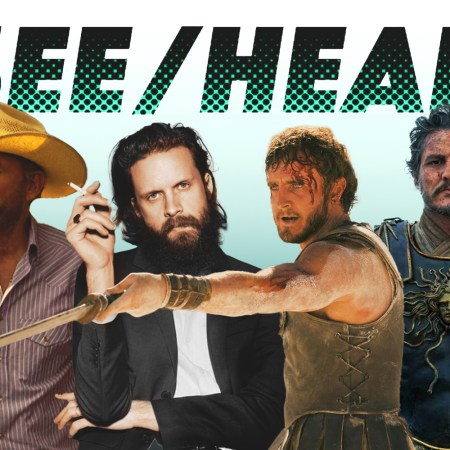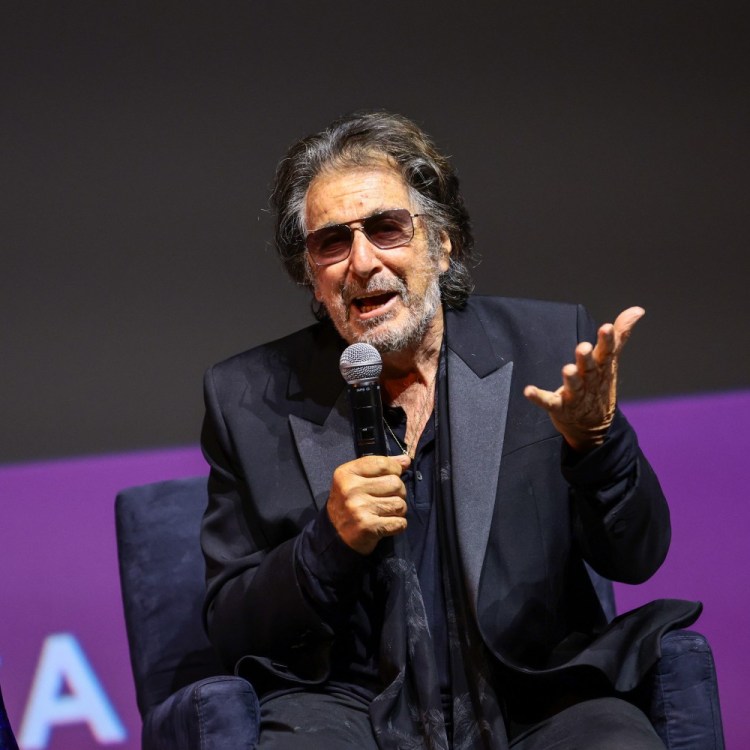The title Cold Pursuit, a snowbound actioner starring Liam Neeson opening Friday, is a mashup of common phrases. One is that revenge is a dish best served cold; the other, a pun on the concept of hot pursuit. And hint: this time it’s really, really, really personal.
Thanks to the Taken Series, 1, 2 and 3, along with The Commuter, revenge has become Neeson’s cash cow, making past films like Schindler’s List, Love, Actually and Michael Collins blurry memories. He did those? Yes, he did. It’s such familiar territory that may have been why the 66-year old let his guard down this week during a Cold Pursuit junket, where he shared a disturbing anecdote.
According to The Independent, years ago when Neeson learned that an Irish girlfriend had been raped by a man she claimed was “black,” he roamed the streets as enraged as his fictional heroes. He said he went “up and down areas with a cosh, hoping I’d be approached by somebody—I’m ashamed to say that—and I did it for maybe a week, hoping some [making air quotes with his fingers] ‘black bastard’ would come out of a pub and have a go at me about something, you know? So that I could kill him.”
Neeson’s costar Tom Bateman, realizing the publicity gaffe, said “holy shit,”
Yet Neeson persisted: “I did learn a lesson from it, when I eventually thought, ‘What the fuck are you doing,’ you know?… I come from a society—I grew up in Northern Ireland in the Troubles—and, you know, I knew a couple of guys that died on hunger strike, and I had acquaintances who were very caught up in the Troubles, and I understand that need for revenge, but it just leads to more revenge, to more killing and more killing, and Northern Ireland’s proof of that.”
While Neeson, who appeared on Good Morning America on Tuesday to do damage control, tries to swim out of the career-strangling net he’d woven for himself, there’s no denying that the urge for revenge that animates his mainstream films is rooted in one of the most flammable of human emotions. To quote Michael Corleone, who knew a thing or two about avenging himself on his enemies, “just when I thought I was out they pull me back in!”
And the rope they use – is vengeance. As the death of Bambi’s mother forces the little animated deer to begin his own journey toward adulthood, the revenge film throws friends and relatives under the bus in order to animate the hero. And justify his inordinate violence – a key ingredient to these films.
My first introduction to the genre was Charles Bronson and Death Wish. Do I remember his dead wife and ravaged daughter that launched his own savage attacks? No, I remember his grim countenance and the escalating violence of the 1974 film. It was a watershed moment for Bronson’s career and was remade with Bruce Willis in 2018.
Why is Dirty Harry dirty? Because the extremes that Clint Eastwood’s titular rogue cop goes to exact justice and atone for the killing of innocents inspires more collateral damage than the original crime. Among the movie’s enduring powers is how it amps the audience up to identify, not with the school kiddies in the yellow bus threatened by the tug of war between crime and punishment, but the toxic avenger with a badge and a gun.
What do we remember about Fatal Attraction, the 1987 extramarital-affair-gone-awry thriller pairing hubby Michael Douglas and one-night stand Glenn Close? Her jilted virago boiled his kid’s bunny in the ultimate act of revenge against the nuclear family and the near impossibility of a zipless screw.
Few emotions set a leading man or lady to the bunny boil more swiftly than unexpected loss igniting righteous vengeance. Whether it’s William Shakespeare’s Hamlet, Quentin Tarantino’s The Hateful Eight or Sofia Coppola’s The Beguiled, the desire to be a mensch is never quite as compelling as the desire for retaliation.
Vengeance in fiction endures because it is firmly rooted in reality.
Recently, 1990s emasculator Lorena Bobbitt is back in the news. Who can forget how the headline making wife unplugged her husband’s member when he strayed — and tossed the tool out her car window?
As we monitor the Brooklyn trial of El Chapo, aka Joaquin Guzman Loera, who can forget all the heads he rolled and bodies he burned to prove that he and Mexico’s Sinaloa Cartel could not, would not be crossed. The consequences of doing so were biblical.
If there’s a teachable moment it’s that revenge never solves anything. And, yet, that’s the essence of this human tragedy. That we cannot repress the urge and stop ourselves – and even if we can, we live vicariously through movies like Cold Pursuit, Dirty Harry, and Death Wish.
Revenge, for Hollywood, is a dish best served – constantly.
This article was featured in the InsideHook newsletter. Sign up now.
























